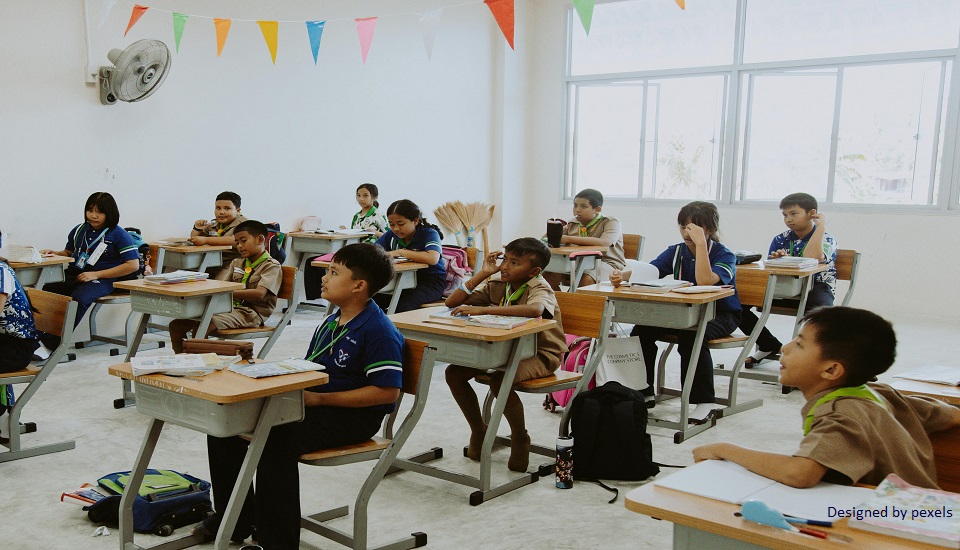
Scaling Teacher Learning Networks in Thailand: Insights from the One Teacher Thailand Initiative
27th October 2025Thailand has always been a hub for educators seeking meaningful classroom experiences, especially for those who choose to teach English in Thailand. But beyond its cultural richness and thriving TEFL community lies a deeper transformation, one focused on empowering teachers through continuous learning and collaboration.
The “One Teacher Thailand” Initiative, launched by the Ministry of Education, aims to build sustainable teacher learning networks that connect educators across regions, subjects, and school levels. Supported by digital tools and grassroots engagement, the program’s goal is simple yet powerful, to make teacher professional development a collective, not an isolated, journey.
Whether you’re a local teacher or an international educator certified through accredited TEFL courses online, this initiative offers valuable insights into how shared learning can enhance teaching quality and student outcomes nationwide.
Understanding the “One Teacher Thailand” Initiative
The “One Teacher Thailand” program was created to strengthen teacher capacity through peer collaboration. Rather than relying solely on top-down training, it emphasizes teacher-to-teacher learning, mentorship, and knowledge-sharing across schools.
Key Objectives Include:
- Encouraging collaborative lesson planning and classroom innovation.
- Promoting peer mentoring for early-career teachers.
- Creating regional and online communities of practice to share ideas and resources.
- Integrating digital learning platforms for equitable access to professional development.
This decentralized approach to professional growth reflects a global shift, from isolated teacher training sessions to continuous, network-based learning ecosystems.
Why Teacher Learning Networks Matter in Thailand
Thailand’s education system encompasses more than 38,000 schools and nearly 870,000 teachers, many of whom work in rural or under-resourced regions. This widespread network highlights both the scale of the system and the importance of collaborative professional learning to bridge educational gaps. Traditional, centralized professional development often struggles to reach these educators effectively.
Teacher learning networks (TLNs) bridge this gap by:
- Encouraging local innovation through contextualized teaching solutions.
- Empowering teachers to learn from peers who face similar challenges.
- Building sustainable professional communities that go beyond single workshops.
By fostering collaboration and shared leadership, TLNs turn teachers into co-creators of educational change, rather than passive participants.
Digital Transformation and the Rise of Online Collaboration
In recent years, Thailand’s education sector has embraced digital platforms to connect teachers across provinces. The One Teacher Thailand initiative leverages online communities, webinars, and mobile applications to scale impact beyond geographical limitations.
Examples of Digital Collaboration Tools:
- LINE Groups & Facebook Communities – For rapid resource sharing among teachers.
- MOE Online Learning Portal – Offers professional training modules accessible nationwide.
- YouTube-based micro-learning – Enables teachers to share best practices through short, practical videos.
This blend of offline mentoring and online learning mirrors global best practices in professional development, combining technology with human connection.
Measurable Impact: What Has Changed So Far?
The early outcomes of the “One Teacher Thailand” program are promising:
- Increased teacher engagement in peer learning circles.
- Higher classroom innovation rates, especially in rural schools.
- Improved student engagement and learning outcomes linked to collaborative lesson design.
- Empowerment of teachers to share insights nationally through digital showcases.
Recent data from Thailand’s Ministry of Education suggests that participation in teacher learning networks has expanded rapidly, with a majority of public-school teachers joining at least one professional community by 2025, a number expected to continue growing as digital collaboration tools evolve.
5. Challenges and Opportunities Ahead
Despite its success, scaling teacher learning networks is not without challenges. Limited digital literacy, inconsistent internet access in remote areas, and the need for stronger mentorship structures remain barriers.
However, with ongoing investment in digital infrastructure and leadership development, Thailand is well-positioned to turn its teacher network model into a global benchmark for collaborative education reform.
For international educators and TEFL professionals, understanding Thailand’s approach provides valuable lessons in adaptability, shared growth, and lifelong learning.
What Global Educators Can Learn from Thailand
Thailand’s “One Teacher Thailand” initiative showcases a blueprint for scaling teacher learning in inclusive and sustainable ways.
Global educators and TEFL trainers can apply similar principles:
- Build cross-border learning communities.
- Use technology for professional collaboration.
- Emphasize peer-led learning to complement formal training.
For those preparing to teach English in Thailand, being part of such collaborative networks enhances both teaching effectiveness and cultural understanding, making the teaching experience more rewarding and impactful.
Final Thoughts
The “One Teacher Thailand” initiative is more than a national project, it’s a movement toward teacher empowerment, collective wisdom, and sustainable education reform. By blending digital innovation with peer collaboration, Thailand is redefining what effective professional learning looks like in the 21st century.
For aspiring educators, investing in accredited TEFL courses online is the first step toward joining this transformative ecosystem. It equips you with the global teaching skills, adaptability, and confidence needed to thrive, whether you choose to teach in Thailand’s classrooms or connect through its growing digital networks.
As education becomes more interconnected, Thailand’s example proves that when teachers learn together, students and societies move forward together too.
Frequently Asked Questions (FAQ)
1. What is the “One Teacher Thailand” initiative?
The “One Teacher Thailand” initiative is a government-led program by Thailand’s Ministry of Education aimed at strengthening teacher collaboration. It connects educators across the country through digital platforms, peer networks, and shared professional learning communities to improve teaching quality and innovation.
2. How do teacher learning networks help improve education in Thailand?
Teacher learning networks encourage educators to collaborate, share classroom strategies, and develop problem-solving approaches together. These networks especially benefit rural teachers, helping bridge the gap between urban and remote schools through digital tools and community support.
3. Can foreign teachers participate in Thailand’s teacher learning networks?
Yes. Many international educators who teach English in Thailand are invited to participate in local or online teacher development communities. Joining these networks helps them understand the Thai education system better, exchange best practices, and contribute to school improvement initiatives.
4. How has digital technology enhanced teacher collaboration in Thailand?
Digital platforms such as LINE groups, MOE online learning portals, and social media communities have made it easier for teachers to connect, share ideas, and access training from anywhere. These tools are helping scale professional learning networks and reduce regional isolation among teachers.
5. What challenges do Thai teachers face in network-based professional learning?
Some challenges include limited internet access in rural areas, varying digital literacy levels, and time constraints due to heavy teaching workloads. However, ongoing government initiatives and professional development programs are addressing these gaps to make participation more inclusive.
6. How can aspiring teachers prepare to work in Thailand’s evolving education sector?
Educators planning to teach English in Thailand can strengthen their qualifications through accredited TEFL courses online. These programs build essential classroom management, cultural awareness, and digital teaching skills, all crucial for thriving in Thailand’s collaborative teaching environment.
7. Why is the “One Teacher Thailand” model relevant globally?
The initiative serves as a global example of how teacher empowerment and networked learning can drive sustainable education reform. It proves that when teachers collaborate across borders and share ideas, both classroom innovation and student outcomes improve.

